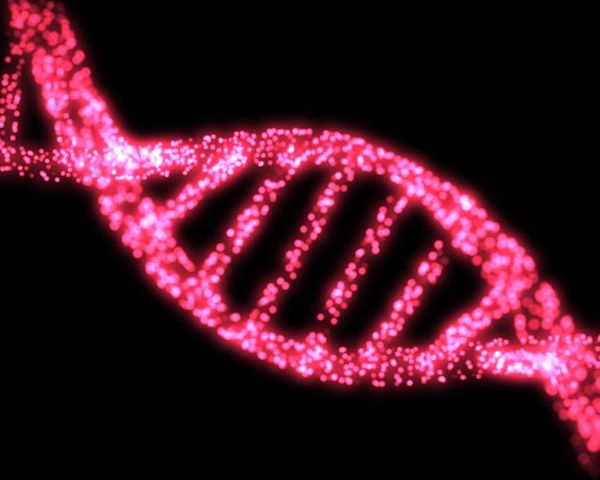Related Coherent Light (Biophoton) Can Heal Cancer and Other Diseases
Source – WakeUpWorld
by Sayer Ji, January 16th, 2018
A new Lancet Oncology study, reported widely in the mainstream media, confirms that the so-called “breast cancer genes” (i.e. BRCA1/2) do not have the power to determine breast cancer survival outcomes, as widely believed by the medical profession.
The study, titled “Germline BRCA mutation and outcome in young-onset breast cancer (POSH): a prospective cohort study“, found:
“[There is] no significant difference in overall survival or distant disease-free survival between patients carrying a BRCA1 or BRCA2 mutation and patients without these mutations after a diagnosis of breast cancer.”
The BBC broke down the study’s findings in greater detail, in their online article titled, “Breast cancer survival ‘unaffected by faulty gene“:
“The study, published in The Lancet Oncology, found 12% of 2,733 women aged 18 to 40 treated for breast cancer at 127 hospitals across the UK between 2000 and 2008 had a BRCA mutation.
“The women’s medical records were tracked for up to 10 years.
“During this time, 651 of the women died from breast cancer, and those with the BRCA mutation were equally likely to have survived at the two-, five- and 10-year mark as those without the genetic mutation.
“This was not affected by the women’s body mass index or ethnicity.
“About a third of those with the BRCA mutation had a double mastectomy to remove both breasts after being diagnosed with cancer. This surgery did not appear to improve their chances of survival at the 10-year mark.”
The study has powerful implications for the future of breast screening programs and the standard of care for ‘breast cancer’ patients. So powerful is the belief that BRCA genes ’cause’ breast cancer, that millions around the world consider it fact. Celebraties like Angelina Jolie have added fuel to the fire of this dangerous myth, by electing to have her breasts removed ‘prophylactically’ due to her BRCA status and the recommendations of her physicians. I discussed questionable nature of this decision in a previous article, titled “Did Angelina Jolie Make A Mistake By Acting On The ‘Breast Cancer Gene’ Theory?”, and elaborated further on the topic in an article titled “Pinkwashing Hell: Breast Removal as a Form of ‘Prevention“.
In the excerpt below from the Discussion portion of the new Lancet Oncology paper, researchers not only failed to find a causal link between the BRCA genes and overall breast cancer survival, but noted that some BRCA mutation carriers (diagnosed with triple negative breast cancer) may actually have improved survival relative to non-mutation carriers:
“We found no clear evidence that either BRCA1 or BRCA2 germline mutations significantly affect overall survival with breast cancer after adjusting for known prognostic factors. Decisions about timing of risk-reducing surgery should take into account primary tumour prognosis and patient preference. BRCA mutation carriers presenting with triple-negative breast cancer might have an improved survival during the first few years after diagnosis compared with non-carriers, although immediate bilateral mastectomy did not account for this advantage. Finally, analysis of early outcome data from trials exploring BRCA-deficient tumour treatment in patients with triple-negative breast cancer should be interpreted with caution in view of the possible early survival advantage for BRCA mutation carriers.”
While this finding may be surprising to those who have been led to believe that the BRCA gene ‘mutation’ status is a death sentence, we have spent the past few years debunking this misinformation by looking at the non-industry funded evidence itself. Millions of women have already been needlessly traumatized by overdiagnosis and overtreatment of non-cancerous, indolent growths of epithelial origin such as ductal carcinoma in situ (DCIS). The “BRCA gene causes breast cancer” meme is another example of a mythical entity which has brought significant harm to women in the name of ‘saving lives.’ It has been leveraged by private and governmental interests alike to corral populations into cancer screening programs, whose results have often run contrary to their stated objectives of preventing suffering.
About the Author
Sayer Ji is the founder of Greenmedinfo.com, a reviewer at the International Journal of Human Nutrition and Functional Medicine, Co-founder and CEO of Systome Biomed, Vice Chairman of the Board of the National Health Federation, and Steering Committee Member of the Global Non-GMO Foundation.
_________________________
Stillness in the Storm Editor’s note: Did you find a spelling error or grammar mistake? Do you think this article needs a correction or update? Or do you just have some feedback? Send us an email at [email protected] with the error, headline and url. Thank you for reading.

Leave a Reply